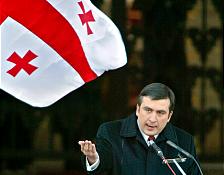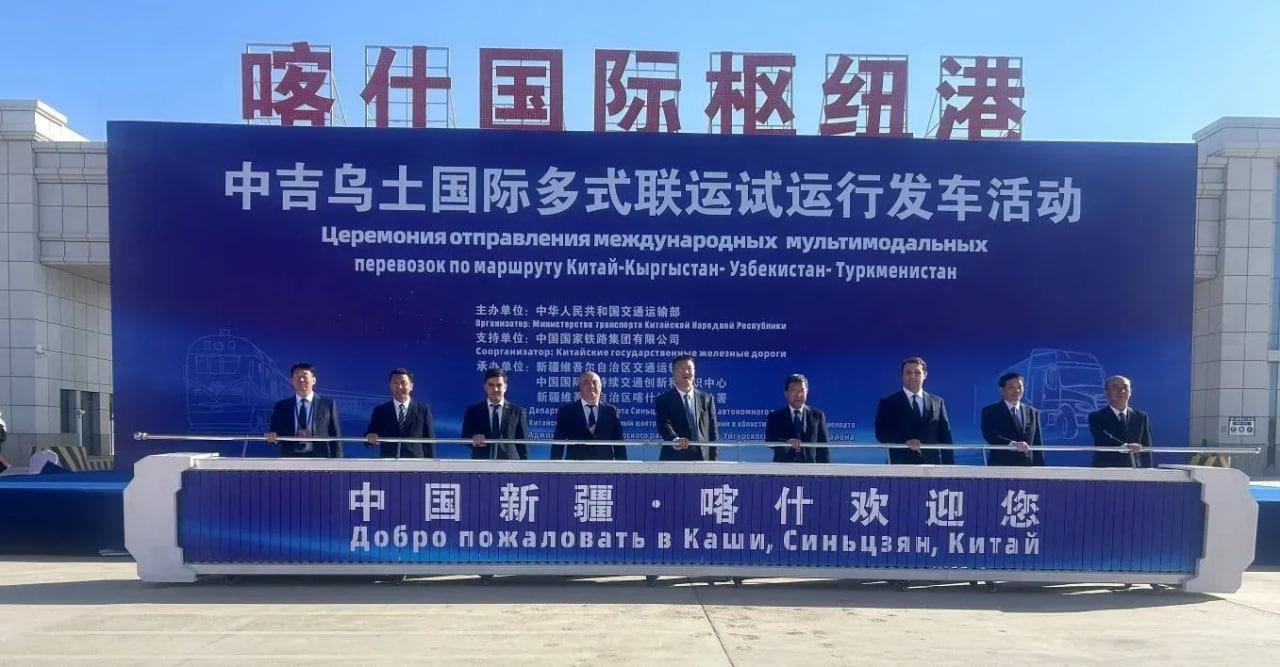
WHEN STABILITY IS UNCOMFORTABLE: AIR ATTACK ON THE UPPER KODORI VALLEY
WHEN STABILITY IS UNCOMFORTABLE: AIR ATTACK ON THE UPPER KODORI VALLEY
Increasing direct evidence as well as strong circumstantial evidence suggests that the air attack on Georgia’s upper Kodori Valley during the night of March 11-12 was carried out by Russian helicopters. An investigative report is due for release in the next few days under a United Nations imprint. The political issue at hand is whether the UN would, as usual, seek to obscure Russia’s responsibility.
Two or three helicopters violated Georgia’s internationally recognized air space over the upper Kodori Valley that night, flying in from Russia’s Karachaevo-Cherkessia region. The helicopters, apparently of the Mi-24 type, fired at least 20 guided projectiles, damaging the local government headquarters, a school, and some other civilian administration buildings in several villages. The damaged building in the village of Chkhalta is shared by the government office and a school.
Shrapnel from those projectiles was collected after the strikes. Some additional shrapnel seems consistent with a reported strike by a ground-launched unguided rocket from the Abkhaz-controlled lower part of Kodori, which is monitored by Russian “peacekeeping” troops. No human casualties were reported (Rustavi-2 and Imedi televisions, March 12-16).
Those helicopters crossed the Caucasus mountain range from Russia through either the Klukhor-Nakhar pass or the Ptishi pass and over flew the upper Kodori Valley for approximately one hour. Such a flight in the winter fog through narrow passes at night presupposes highly trained pilots and sophisticated night-vision equipment. Georgian radar picked up the helicopters for part of their flight, apparently, however, missing their passage across the mountains (Georgian intelligence briefings cited by The Messenger, March 12-16; Georgia Non-Paper at the UN, March 12; New York Times, March 13, 16).
This attack is at least the fifth Russian violation of Georgian air space in the upper Kodori Valley in the last six months. It is, however, the first incident when weapons were fired. Georgian radar recorded all of those incidents, but Georgian police stationed in the area have long been instructed not to fire.
On March 13 a joint commission staffed by representatives of the United Nations Mission in Georgia (UNOMIG), Russian “peacekeepers,” as well as representatives of Georgia and the Abkhaz authorities, began an investigation at the scene. Its report can affect not only the debate on Abkhazia in the UN Security Council next month, but the overall direction of political negotiations and on internationalizing the Russian “peacekeeping” operation.
The Russian military denies any involvement in the helicopter raid. The Air Force Command’s chief spokesman, Col. Alexander Dobyshinski, the deputy ground-force commander responsible for peacekeeping, Lt.-General Valery Yevnevich, and the “peacekeepers’” commander in Abkhazia, Maj.-General Sergei Chaban, all publicly insist that that no helicopters or any aircraft under their respective commands took off that night in that area. Significantly, however, Russia’s military command in the North Caucasus, from which direction the helicopters attacked, remains silent.
The Russian peacekeeping command declares that its troops do not have artillery at their disposal, but “only grenade launchers.” While this may be the official version, the Russian military as well as Abkhaz forces possess ample undeclared arms stockpiles, including in the area of Tkvarcheli and lower Kodori Valley.
Unlike the military, Russia’s Ministry of Foreign Affairs is not denying the fact of the air raid. It merely explains it, in ways that implicitly warn of a possible recurrence. According to the ministry’s chief spokesman, Mikhail Kamynin, the incident is a “logical result” of Georgia’s July 2006 decision to re-establish control over this part of Abkhazia and install authorities loyal to Tbilisi there. Even more explicitly, Deputy Minister of Foreign Affairs Grigory Karasin describes the air incident as part of an “action-reaction” process, triggered by Tbilisi’s “destabilizing” decision last year, with consequences now and perhaps down the road. He warns, “This incident sends a strong message to those who are attempting to destabilize” the situation” (Interfax, Izvestiya, March 13, 16).
By this logic, the re-establishment of Georgia’s legitimate authority in the anarchic no-man’s land that used to be upper Kodori is destabilizing, notwithstanding the actual stabilization and rapid economic development of the area in the secure environment that exists since July 2006. Further, by Moscow’s official logic, the air attack on Kodori should serve as proof that Georgia is destabilizing the area.
In fact, the attack seems intended to stop the area’s development by Georgia. During the four months between July 2006 and the onset of winter, Georgia restored ground transport and introduced air transport between upper Kodori and the rest of the country, ensured electricity supplies, renovated the schools and a hospital, poured in food and medical supplies, and created jobs for local residents in the newly secure environment. The upper Kodori Valley suddenly looks more developed than the rest of Abkhazia. Tbilisi has announced plans to continue investing in the area and to proceed with construction work apace this coming spring.
Moscow and the Abkhaz authorities are undoubtedly alarmed by the growing contrast between this area and the rest of Abkhazia in terms of economic development. While professing to fear a Georgian attack from upper Kodori (almost inconceivable if only because of terrain features), Moscow and Sukhumi must actually be more concerned about the political and international ramifications of this Georgian success. This is why Moscow and Sukhumi demand the withdrawal of Georgian authorities and “troops” [in fact, police] from the upper Kodori and are now apparently signaling that they are prepared to undermine stability in pressing for that goal. It reflects Moscow’s traditional belief that Georgia’s stability and prosperity are incompatible with Russian interests.


